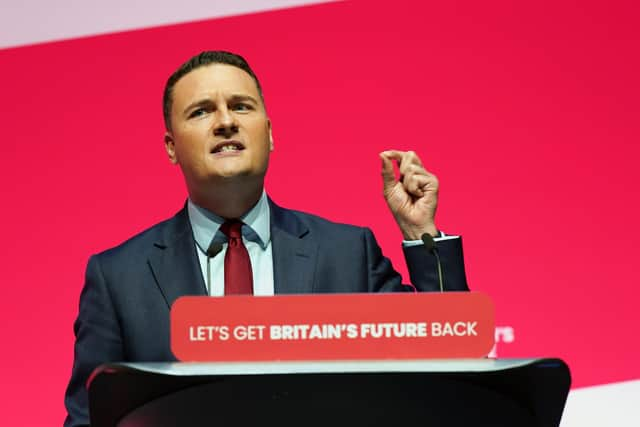The NHS is mired in masses of bureaucracy and has been for some time - David Behrens
It came from the venerable left-winger Tony Benn, who regaled parliament from the back benches with an apparently true anecdote about a health service memo that had been doing the rounds of the chattering classes. It concerned a fictitious boat race between the NHS and a more efficient Japanese crew which the British team lost by having eight people steering and one rowing, instead of the other way around.
The NHS, as Benn told it, held an inquiry and reorganised the team to have three steering managers, three assistant steering managers and a director of steering, with an incentive offered to the rower to row harder. When they lost again, they laid off the rower for poor performance, sold the boat and awarded the proceeds to the director of steering.
Advertisement
Hide AdAdvertisement
Hide Ad“That is what is happening all over the place,” said Benn. “There is masses of bureaucracy in the health service and a denial of what people need.”


He was right and he would be even more right today. The NHS has got worse, not better, in the last 28 years and its problems are more of its own making than of any one government’s.
Mr Streeting, who is now old enough to be shadow health secretary, acknowledged this when he told the party faithful – many of whom won’t remember when they last saw their GP, let alone Tony Benn – that top-to-bottom reform was more important than pouring ever more money into a health system that wasn’t working. You couldn’t call it a national health service, he said, if it didn’t function first as a neighbourhood health service.
So Labour wants to shift its focus from hospitals to care in the community, from analogue to digital, from sickness to prevention. That’s all good. But its biggest challenge is the one that has eluded countless health secretaries – to steer the NHS culture from administering paperwork to administering treatment, and to do it without the need for 300 more steering managers. Good luck with that.
Advertisement
Hide AdAdvertisement
Hide AdMr Streeting’s speech was far more detailed than the one his party leader gave the previous day, in his shirt sleeves because someone had thrown glitter on his jacket. He should have kept it on; people might have thought he was Ben Elton.
Keir Starmer’s promise to “bulldoze” planning regulations was a model of ambiguity – demonising nimbys who seek to protect their neighbourhoods while accepting they have a point about the need to preserve important green spaces.
The problem, Starmer claimed, was that the green belt was being misapplied to “disused car parks and dreary wasteland”, locations which Labour would target for huge new developments. A hit list would be published within six months of taking office, he promised.
Really, though? Is there honestly a council somewhere refusing to build houses on an empty car park? And if so, where? Sir Keir should let us see this list of his now, not after the election, because if he’s secretly planning to sanction 3,000 new homes a few hundred yards from yours, you’d rather like to know about it before you vote for him.
Advertisement
Hide AdAdvertisement
Hide AdAnd it’s all quite disingenuous when you consider that Starmer himself was happy enough to play the nimby card in opposing the construction of HS2 through the backyard of his St Pancras constituency.
But his pitch for power is more about what he says he isn’t than what he is. He isn’t Rishi Sunak and he especially isn’t Jeremy Corbyn. They might as well have put that up in big letters behind him.
His centrist leadership has gone through three stages, he said. Not Being Corbyn was stage one, followed by “exposing the Conservatives and SNP as not fit to govern”, although they managed to do that pretty much by themselves. The third stage was “setting out the positive case” for change, so I guess we’ll have to wait for stage four to see if it involves bulldozers turning up at your door. And what of stage five? Starmer is setting out his stall for not one but two terms in office, at the end of which he would be one of the oldest prime ministers in history. And on the fringes of the conference, his prospective successors were already lining up to one day replace him. Wes Streeting was chief among them, making speeches to packed audiences of party activists who clearly saw him as part of Labour’s next generation. Did they know this was a path Tony Benn had beaten long before?